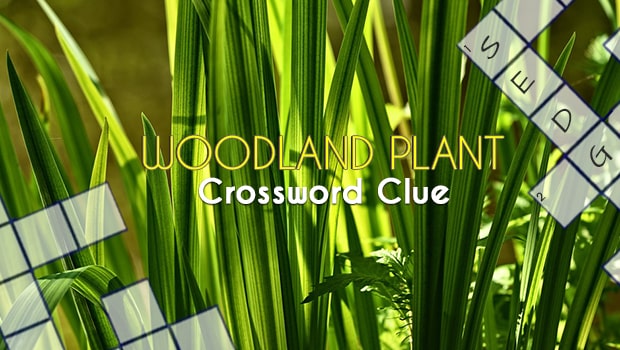Unraveling the Enchanting World of Woodland Plants

Woodland plants, the enchanting inhabitants of shaded forests, have long captivated nature enthusiasts. Often a popular crossword clue, these mysterious and charismatic words deserve more than just a fleeting mention. Let us explore some common woodland plants and unravel the captivating stories behind them.
Moss (4 letters)
This small plant grows best in damp, shady places. It makes a soft, velvety carpet on rocks, logs, and tree stumps. Moss comes in many different colors, from bright green to deep emerald. It adds a magical touch to the woods. Moss is an inspiring reminder of nature's resilience and complexity. Moss can be used in crossword puzzles to describe a type of vegetation, or to complete a clue about its habitat. It can also be used in puzzles to describe its physical characteristics, such as its small, thin leaves.
A Delicate Delight - The Primrose (8 letters)
The primrose softly emerges from the rich undergrowth, its delicate petals presenting a gentle yet vivid display of color. This wild treasure is prized for both its medicinal benefits and beauty. Since ancient times, primrose oil, made from the plant's seeds, has been used to treat various diseases. Primrose helps to relieve skin ailments and relieve menstruation discomfort. Primroses have long been used as a sign of youth, love, and bravery. Remember the primrose's striking beauty and fascinating lore when you come across the clue "Woodland plant" (8 letters).
The Charismatic - Orchid (6 letters)
The orchid, famous for its magnificent and varied hues and patterns, conveys an unmistakable charm. Since ancient times, societies worldwide have venerated orchids as a representation of beauty, grace, and love. However, their captivating allure masks a story of tenacity. A true example of nature's inventiveness, some orchids have evolved astonishing adaptations, forging symbiotic relationships with particular fungi for survival.
Ivy (3 letters): Nature's Climbing Artist
The evergreen ivy is a skilled climber and vital to many forest scenes. Plants like ivy are frequently used as ornamentation because of their robust growth and sticky tendrils. Birds and small mammals often benefit from these climbers' protection and nesting opportunities. Ivy's glossy leaves and ability to persevere in the face of hardship have made it an iconic symbol of nature's tenacity, even though it is sometimes an annoyance.
Oak (3 letters): The Towering Guardians
Oaks are beautiful trees with a long history of being known for their strength and endurance. Their cultural and historical significance is deep, with many associating them with wisdom and long life. Numerous organisms, from squirrels to insects, rely on oak trees for shelter, and the acorns they produce feed various forest animals. These ancient giants have the potential to live for hundreds of years and see the natural world evolve before their eyes.
Nettle (6 letters): The Unassuming Healers
The Nettle has incredible therapeutic powers despite its unfriendly appearance (stinging leaves). It can be brewed into a tea packed with vitamins, minerals, and antioxidants or cooked and eaten like a leafy green vegetable. It's been used in traditional medicine for centuries to treat everything from muscle pain to allergies. It's a versatile plant that's sure to add a unique kick to any crossword puzzle.
Mistletoe (9 letters): The Mystical Mistletoe
Nestled high in the branches of trees, this parasitic plant holds a special place in folklore and holiday traditions. It is said that a kiss beneath the Mistletoe brings luck and love. Mistletoe also plays a vital role in forest ecosystems by providing nourishment and shelter for birds and insects.
Bluebell (8 letters)
When spring comes, it seems like a spell is cast deep in the woods. The bluebells turn the forest floor into a blue sea. These tiny flowers make a magical atmosphere with their hanging bells in shades of blue and purple. Bluebells have a whimsical folklore associated with them and are believed to ring when fairies pass by. They symbolize gratitude and everlasting love, making them a great addition to any crossword problem and romantic walk through the woods.
Fern (4 letters)
These wonderful plants, whether a Boston fern or a maidenhair fern, have adorned our world for millions of years. Ferns flourish in shady, wet conditions, forming beautiful green carpets beneath the towering trees. Their ancient ancestry and unusual appearance make them an intriguing subject in crossword puzzles, leaving solvers yearning for the tranquility of the woods' cold embrace.
Conclusion
As seen above, woodland trees encompass a range of different plants. Woodland plants' complex patterns and textures can serve as a fascinating challenge in crossword puzzles. The great variety of plants that may be found in woodlands, from native flowers to strange shrubs and trees, provides the puzzler with an almost infinite number of opportunities for creating unique and engaging crossword puzzles. Whether as hints or solutions, woodland flora can greatly enhance the enjoyment of a challenging puzzle.
